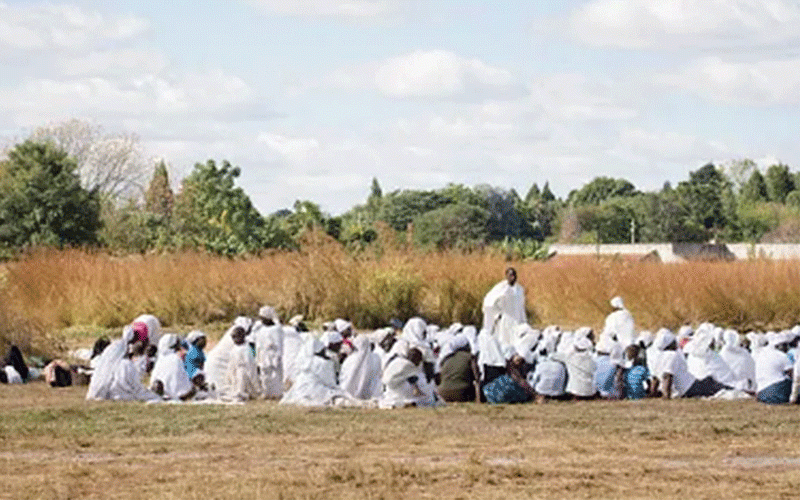
THE Zimbabwean Cabinet this week discussed two new funds — revival of the community share ownership schemes and a creation of a road accident fund.
Both are good ideas, but past experience with how government-controlled funds were looted calls for citizens to be wary.
Without prior consultations on the new funds, the Cabinet deliberated and made it a policy to pursue the two issues.
It should be conceded right from the start that the two funds are not only desirable, but also necessary in a normal country.
A post-Cabinet statement issued on Tuesday said: “Cabinet considered and approved proposals on the operationalisation of the community share ownership trusts and reserved sectors policy.”
It added: “To revitalise the community share ownership trusts programme, government will undertake a comprehensive review of the implementation framework and provide corporate rescue support to struggling trusts.”
The Cabinet also approved the principles of the Road Accident Fund Bill.
It said: “The fund will provide immediate recourse to medical and funeral expenses, and enhance the capacity of emergency services providers and medical institutions to effectively respond to road accidents to save lives.”
- Kasukuwere dares Mnangagwa
- Kasukuwere dares Mnangagwa
- Chiefs to supervise food aid distribution
- Graft 'bleeding' ZimStat
Keep Reading
Added the Cabinet: “The Road Accident Fund will be funded from motor vehicle insurance premiums and any other such funds appropriated by the Treasury.”
From the face of it, these are noble efforts. However, the devil is always in the details.
Community share ownership trusts (CSOTs) are not new.
They were initially set up in 2013 under the Indigenisation Act.
Actually, a total of 58 trusts were set up, but many fizzled out or soon found themselves broke.
The trust’s main weakness was their structure and an insistence on ownership.
They were appointed by government ministers and answerable to the minister.
The trusts were to employ their own secretariats to run their own day-to-day affairs.
The heavy interference of the minister effectively meant that the trusts were government agencies.
They were not independent and relied on political patronage.
The trusts’ main funding was an arbitrary 10% shareholding in the mining enterprises within their districts.
These shares were not paid for and the trusts expected to receive annual dividends, but these are dependent on profits made in the year and if the boards decided it prudent to declare a dividend if it had no immediate needs for the surplus cash.
There was no transparency and accountability in the operations of the trusts.
The community only received information in a top-down approach as the trusts were answerable to the minister instead of the community.
It remains unclear why government insisted on a direct shareholding in the entities instead of having progressive legislation on procurement of goods and services from local suppliers or strict corporate social responsibility guidelines.
The answer may lie in the penchant for politicians to access easy money and use the same for patronage.
These are some of the pitfalls that have to be plugged and Parliament has its work cut out.
My other gripe with the framing of the Cabinet statement on failed trusts.
It states, “provide corporate rescue support to struggling trusts”.
We are aware that corporate rescue support has been used to siphon resources.
The classic case is the unending corporate rescue of Shabanie-Mashava Mines.
This has been ongoing for a good two decades and the administrator smiled all the way to the bank.
Now, let’s turn to the proposed Road Accident Fund.
My fears are that this could be looted just like the Senior Civil Servants Housing Scheme, War Victims Compensation Fund and the infamous Reserve Bank Farm Mechanisation programme.
These funds were looted dry by the political elites and their cronies.
In the case of War Victims Compensation Funds, the fund was not even widely known.
Politicians like Joice Mujuru, John Landa Nkomo (late), Chenjerai Hunzvi (late), Augustine Chihuri and former President Robert Mugabe’s brother-in-law Reward Marufu were some of the biggest beneficiaries.
It even became a joke that Mugabe’s Cabinet was made up of dead men walking.
A majority of them had received compensation for disability above 90%.
On the farm mechanisation programme, it has become apparent that the beneficiaries were senior politicians, clergy and government bureaucrats.
These beneficiaries never paid back their debts and the taxpayers were once again saddled with picking the tab via the RBZ Debt Assumption Act.
It could be a mere coincidence that in that last year, some private players invested in ambulances.
I would hazard that they had inside knowledge that a new feeding trough will be on the cards.
Some since COVID-19 pandemic have invested in clinics and hospitals.
They are now ready to reap.
It may sound wild, but experience from South Africa has shown that there are cartels from ambulances to hospitals to lawyers who thrive on feeding on the Road Accident Fund.
As earlier argued, Parliament is the last shield on stopping the potential abuse of this fund.
It has to scrutinise and plug every conceivable loophole these vultures are eyeing.
It is not far-fetched to say there would be cartels and collusion in the pricing of these critical services.
Not only that, some will have speed dials to the Fund to have their payments processed in advance.
Would it not be desirable and prudent that public hospitals have their trauma and emergency centres spruced up and receive 80% of the Fund?
Otherwise, it would be Christmas time for the private players feeding on the agony and cries of accident victims.
This is an open call to parliamentarians to for once take their legislative duties seriously and refuse to be whipped into line by the Executive.
Parliament has to clearly legislate how the Fund is managed and that annually, the Fund has to table its report to the house for scrutiny.
For long the call from government has been that it is open for business, but now parliament has to ensure that Zimbabwe is not open to looting.
Zimbabweans at large have to be wary and participate in the public hearings of these two funds whenever they are called.
I’m out.
- Paidamoyo Muzulu is a journalist based in Harare. He writes here in his personal capacity.










